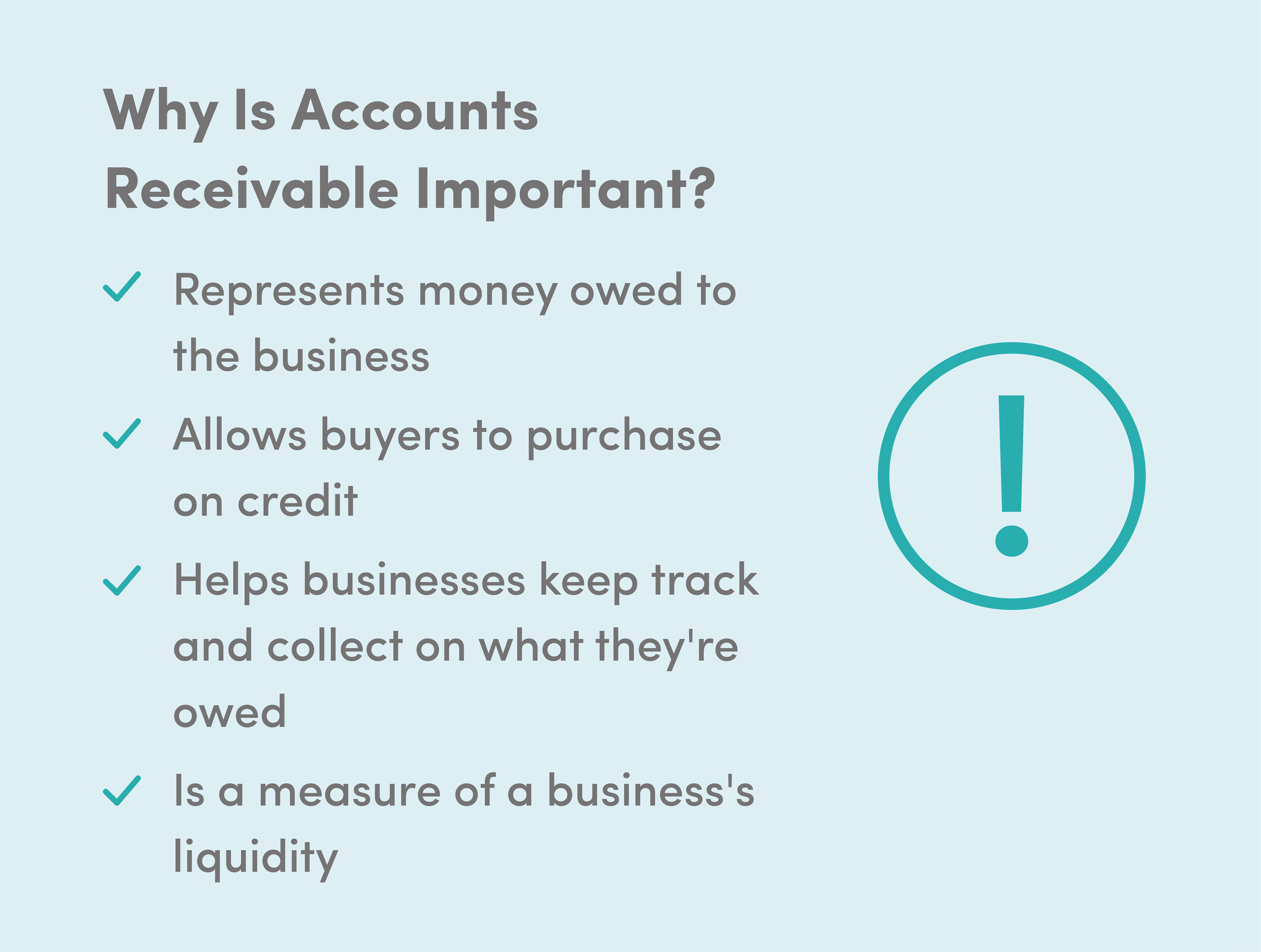Written by: Jacob Dayan
Unless your business operates on a strict cash-only basis, you likely sell to your customers on credit. When you sell on credit, your customer—who receives the goods or service immediately—sends an invoice, which will be fulfilled in the future. The vast majority of businesses sell on credit—and all businesses that do must keep track of all the money their customers owe under an account known as accounts receivable.
This article will go over the inner workings of accounts receivable, how it differs from accounts payable, and how managing your finances can lead to a quicker payment turnaround.
Put simply, accounts receivable refers to money your customers owe for goods or services purchased from you in the past. This money is typically recorded as an asset on your balance sheet; they live under the ‘current assets’ portion on your balance sheet or chart of accounts.

While accounts receivable are considered an asset account—representing money that your customers owe to you—accounts payable are considered a liability account. This is because, with accounts payable, the roles are reversed: you are the customer.
Accounts receivable is considered an asset account. Subsequently, it is not considered a revenue account. However, due to the inherent mechanisms of accrual accounting, your business simultaneously records revenue and accounts receivable. But remember: if your company operates on a strict cash-only basis, there are no accounts receivable. Under the cash system, transactions aren’t considered sales until the money is physically in your bank account.
Unfortunately, problem clients exist. These clients often pay late, or not at all. When a client doesn’t pay, their receivables remain uncollectable; this is known as bad debt.
Businesses should estimate their total bad debts ahead of time to ensure the accounts receivable shown on their financial statements aren’t too high. This is made possible by setting up what is known as an “allowance for uncollectible accounts.”
For example, let’s say you expect your total annual sales for the year to be $500,000. Through experience, you expect that you won’t collect 5% of accounts receivable.
To estimate your annual bad debts, you multiply total sales by the expected percentage of bad debt ($500,000 x 0.05). Subsequently, you would then credit the resulting amount ($25,000) to your allowance for uncollectible accounts—and debit bad debt expense by the same amount.
When it becomes evident that an account receivable will not get fulfilled, it must be written off as a bad debt expense. It is important to note that the allowance for uncollectible accounts simply estimates how much you will fail to collect from specific customers.

Occasionally, you may mistakenly categorize a long-time outstanding amount as bad debt, only to have the problem customer end up fulfilling it after all. To record this transaction, you would begin by debiting your accounts receivable by the outstanding amount to get the receivable back on your books and then credit your revenue by the amount. Afterward, to record the cash payment, you would debit your cash account by the amount and credit your accounts receivable by the same amount again. This closes out the transaction once and for all.
The goal of any business is to have many customers. However, one of the inherent difficulties of having many customers paying on credit is that payment turnaround differs from customer to customer—and some customers tend to pay very, very late.
One of the best ways to keep track of late payments is by calculating your accounts receivable turnover ratio. The accounts receivable turnover ratio refers to a simple financial calculation that portrays the speed at which your customers pay their liabilities.
You can calculate your accounts receivable turnover ratio by dividing your total net sales by your average accounts receivable.
For example, let’s say that at the beginning of the year, you had total accounts receivable of $5,000. At the end of the year, your total accounts receivable is $4,000. Your total net sales for the year were $120,000.
First, you must calculate your average accounts receivable for the year. To do so, add the starting and ending amounts in your accounts receivable and divide by two, like so:
$5,000 + $4,000 / 2 = $4,500
To finally arrive at your accounts receivable turnover ratio, divide net sales—$120,000—by average accounts receivable, like so:
$120,000 / $4,500 = 26.666…
Given these figures, your accounts receivable turnover ratio is 27 when you round up. The higher this figure is, the quicker your customers are settling their liabilities.
Suppose you want to calculate exactly how quickly they are paying you. In that case, you can calculate your average sales credit period by dividing 52—the number of weeks in a year—by your accounts receivable turnover ratio:
52 weeks / 27 = 1.92 weeks
This figure means that it took your customers an average of about two weeks to settle their liabilities in the given year. This example has resulted in a pretty quick turnaround—don’t feel discouraged if your turnaround is not this fast!
Improving the turnaround time of your customers takes patience, proactivity, and a little creative gusto. If you implement a well-communicated, well-organized credit policy, for example, your customers will know exactly what you expect of them in terms of repayment. You can request up-front deposits on higher-cost orders or implement interest accrual on late payments. If you clearly communicate these stipulations with your customers, your turnaround will shorten in no time.
However, perhaps your customers respond better to a carrot than a stick. Why not offer a financial incentive, such as a discount for early repayment? This is where knowing your customer base becomes critical — you can use your knowledge to shape your credit policy moving forward.

Jacob Dayan is a true Chicagoan, born and raised in the Windy City. After starting his career as a financial analyst in New York City, Jacob returned to Chicago and co-founded FinancePal in 2015. He graduated Magna Cum Laude from Mitchell Hamline School of Law, and is a licensed attorney in Illinois.
Jacob has crafted articles covering a variety of tax and finance topics, including resolution strategy, financial planning, and more. He has been featured in an array of publications, including Accounting Web, Yahoo, and Business2Community.

Nick Charveron is a licensed tax practitioner, Co-Founder & Partner of Community Tax, LLC. His Enrolled Agent designation is the highest tax credential offered by the U.S Department of Treasury, providing unrestricted practice rights before the IRS.
Read More
Jason Gabbard is a lawyer and the founder of JUSTLAW.

Andrew is an experienced CPA and has extensive executive leadership experience.
Discussed options for my business with Brian and he was very helpful in suggesting how best to handle it.
Contact us today to learn more about your free trial!
By entering your phone number and clicking the "Get Custom Quote" button, you provide your electronic signature and consent for FinancePal to contact you with information and offers at the phone number provided using an automated system, pre-recorded messages, and/or text messages. Consent is not required as a condition of purchase. Message and data rates may apply.
By entering your phone number and clicking the “Get Started” button, you provide your electronic signature and consent for FinancePal to contact you with information and offers at the phone number provided using an automated system, pre-recorded messages, and/or text messages. Consent is not required as a condition of purchase. Message and data rates may apply.
